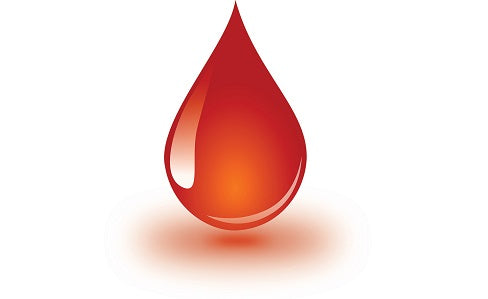Many people are concerned about obesity caused by over-nutrition. Still, are you sure anemia will not happen to you? In 2014, Hong Kong Red Cross has stated that the number of people who failed to meet the blood donation criteria has increased by almost 5% since the year before, and half of these are due to insufficient heme. This is generally known as “insufficient blood”. As a matter of fact, you will be in risk of anemia when you have a unbalanced diet. Let’s see how blood can be supplemented today.
Troubles of anemia

Heme is an indicator for anemia as it is in charge of delivering nutrient to the cells around our bodies. If it is lower than 13g/dL for men or 11.5g/dL for women, it means that the person has anemia. Not only will a person with anemia appears pale with indented fingernails, they also feel tired easily, lack of energy, unfocused, hands trembling, fast heartbeat or even dizzy, thus compromising health.
Breaking away from the family of anemia
Want to feel energized everyday and look rosy? Have a look at the following dietary principles:
- 4 elements of blood supplementation

Iron: The body usually has 3500mg of iron, which is a trace element essential for heme production, as well as a basic raw material for preventing anemia. However, iron will be continuously lost through urine, bile, skin, intestine and menstruation. To effectively resupply blood, it is suggested that you should add the following foods to your diet, though be cautious of the high cholesterol and saturated fat level of red meat. Therefore it is suggested that, for a grown adult, a person should not consume more than 6 ounce of meat, which is meat equivalent to the size of 6 sparrows.


Vitamin B12: Helps in producing normal red blood cells. Commonly found in clams, oysters, sardine and turkey. Nevertheless, they only come from animal, so vegetarians usually lacks this vitamin. One suggestion for this will be to have a sufficient intake of breakfast cereal.

Folic Acid: Also known as vitamin B9, folate is a blood producing vitamin. If folate is insufficient, red blood cells will become abnormally large yet immature, thus having a shorter life span. Foods that are rich in folate include cereal breakfast, spinach, broccoli, asparagus, chickpeas and orange etc.

Vitamin C: Dietary fiber will prevent the absorption of iron within vegetables. Thus it is recommended for everyone to have fruits that are high in vitamin C within the same meal, such as kiwi fruit and guava, so as to reduce the chance of iron sedition within the alkaline environment of small intestine while helping in absorption.
- Avoiding having “iron reduction foods” at the same time, including foods that are high in phytic acid, oxalic and tannic acid. For example, we should avoid drinking coffee, strong tea, carbonated drinks, or beer while having a meal. It is best to drink these beverages one hour after the meal. Similarly, avoid eating chocolate or peanuts while having a meal. Also, spinach has a high content of oxalic acid, therefore we can boil them before cooking so as to reduce the oxalic acid within.
- It is suggested that iron should be supplemented through natural foods, as iron pills might provide an excessive amount of iron supplementation, which will easily cause constipation or even the inflammation of blood vessels, and might even affect cardiovascular health in the long run.
Iron supplementation helper

We wish everyone to be people filled with rosiness and energy, starting from today!


